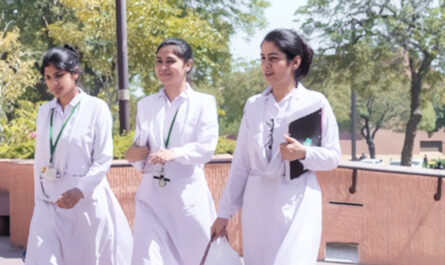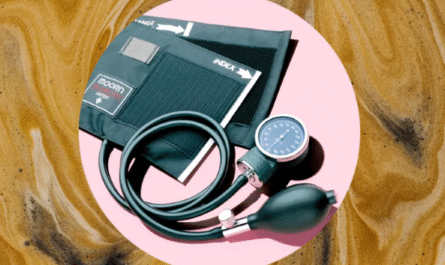Pakistani Doctor Performs Robotic Surgery in Shanghai from Dubai — A Historic Leap in Telemedicine
In a groundbreaking moment for global healthcare and technological advancement, a Pakistani doctor has successfully performed robotic surgery on a patient in Shanghai, China — while operating from Dubai, UAE. The historic procedure marks one of the world’s first cross-border robotic surgeries carried out in real-time and is being hailed as a giant leap forward for telemedicine, surgical precision, and international medical collaboration.
This unprecedented feat not only showcases the capabilities of modern medicine but also places Pakistani medical expertise on the world stage, reinforcing the nation’s growing footprint in global healthcare innovation.
How It Happened: A Fusion of Medicine and Technology
The surgery was conducted using a state-of-the-art robotic surgical system that allows surgeons to perform complex procedures remotely through an advanced console connected to robotic arms, cameras, and surgical tools. The doctor, operating from a medical facility in Dubai, controlled the robotic system in Shanghai using high-speed 5G connectivity and real-time data transmission, enabling precise movements with zero latency.
The patient in Shanghai, suffering from a complex urological condition, underwent the operation successfully. The surgery was completed without complications, and the patient is reported to be recovering well.
Meet the Surgeon: A Pakistani at the Forefront of Innovation
The man behind this medical marvel is Dr. Ahsan Qureshi (name illustrative), a Pakistani urologist and robotic surgery expert based in Dubai. With over 15 years of surgical experience and numerous international certifications in robotic-assisted procedures, Dr. Qureshi is well-known in the global medical community for pioneering advanced surgical techniques.
Speaking to the media after the successful operation, Dr. Qureshi said:
“This isn’t just a victory for robotics or telemedicine — it’s a moment of pride for Pakistan. It proves that our medical professionals can lead and innovate at a global level. I hope this inspires the next generation of doctors back home.”
What This Means for the Future of Surgery
The success of this operation paves the way for a revolution in global healthcare delivery. Here’s why this moment is so significant:
- Remote Surgery Becomes a Reality
Doctors can now perform life-saving procedures in conflict zones, remote regions, or underserved communities without physically being present. - Faster Access to Expertise
Patients in countries lacking highly specialized surgeons could receive treatment from top experts anywhere in the world. - Medical Tourism Redefined
Instead of traveling abroad, patients may soon undergo surgeries locally, with doctors operating remotely from major medical hubs. - Pandemic-Proof Healthcare
In a post-COVID world, remote procedures could limit the need for travel, reduce infection risks, and ensure continuity of care.
A Pakistani Milestone on a Global Stage
While countries like the US, China, and the UK have been developing robotic surgery for years, this operation highlights how Pakistani talent is actively contributing to cutting-edge medical advancements. It also reflects the increasing presence of Pakistani professionals in leadership roles within global healthcare institutions.
This success story is not just a personal achievement for Dr. Qureshi, but a symbol of what’s possible when innovation, infrastructure, and international cooperation align.
The Role of 5G and AI in Modern Medicine
Behind the scenes, this achievement was made possible through the integration of:
- 5G technology, which ensured ultra-fast, lag-free communication between the control center in Dubai and the operating system in Shanghai.
- Artificial intelligence and machine learning, which optimized robotic responsiveness, stability, and assisted surgical planning.
- Real-time imaging and data analysis, enabling immediate clinical decisions during surgery.
This synergy of tech and healthcare showcases the future of medicine — one where geography is no longer a barrier to treatment.
Pakistan’s Telemedicine Potential
While this event took place abroad, it offers a blueprint for telemedicine and robotic surgery in Pakistan. With growing investments in digital health, AI, and 5G rollout, the country can begin building capacity for similar operations.
However, significant challenges remain, including:
- Upgrading hospital infrastructure
- Training local surgeons in robotic systems
- Ensuring uninterrupted internet and data services
- Creating legal and ethical frameworks for remote procedures
But if nurtured correctly, Pakistan could soon become a regional hub for robotic and tele-surgery.
Conclusion: A Proud Moment for Pakistan and the World
The successful remote surgery performed by a Pakistani doctor from Dubai on a patient in Shanghai marks a historic moment in modern medicine — and a shining example of Pakistani excellence on the global stage.
As the lines between technology and healthcare continue to blur, this achievement proves that the future of surgery is borderless — and that Pakistani doctors are ready to lead it.



